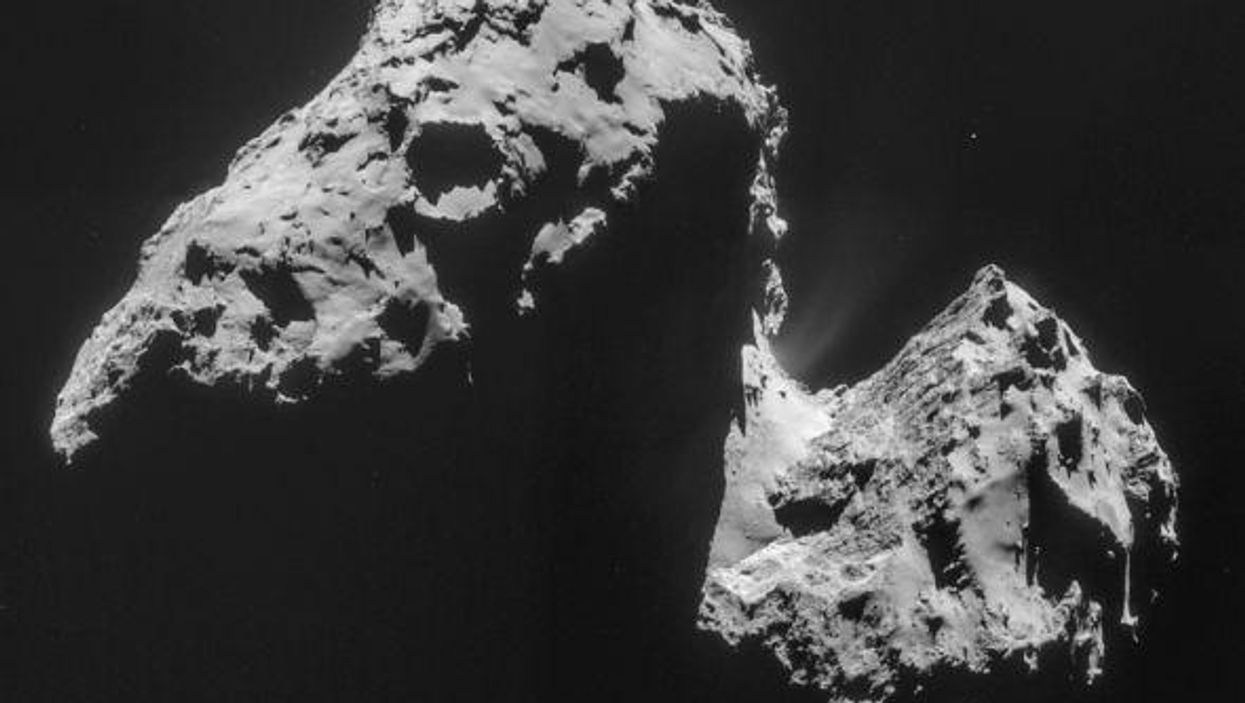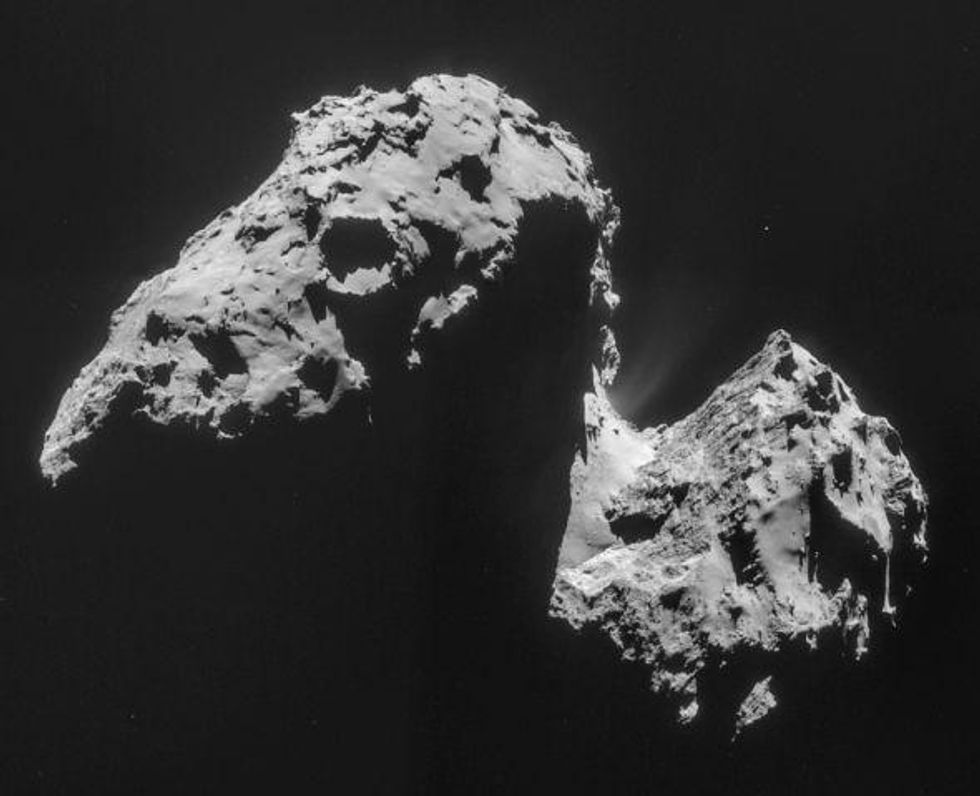Science & Tech
Steve Connor
Dec 11, 2014

The first detailed scientific results from the Rosetta space mission have punched a hole in one of the most plausible theories of how the Earth became a blue planet with vast oceans of water.
Scientists had until now believed the most likely explanation for the presence of water was one or more comets dumping it on the Earth when they collided on the planet a few hundred million years after it was created.
However, results from an instrument on board Rosetta, which will continue to orbit the comet 67P/Churyumov-Gerasimenko for another year, show comets are not likely to be the source of the terrestrial water on which life on Earth depends. Instead, it’s more likely to have come through asteroid collisions several hundred million years later.
The water on Earth has a particular signature in terms of its ratio of molecular isotopes and the water found on 67P has a ratio three times greater. This almost certainly rules out comets as the source of the water on Earth, said Kathrin Altwegg of the University of Bern, principal investigator of the Rosetta instrument that measured the comet’s water isotopes.
More: What you need to know about Rosetta's mission impossible
Top 100
The Conversation (0)














